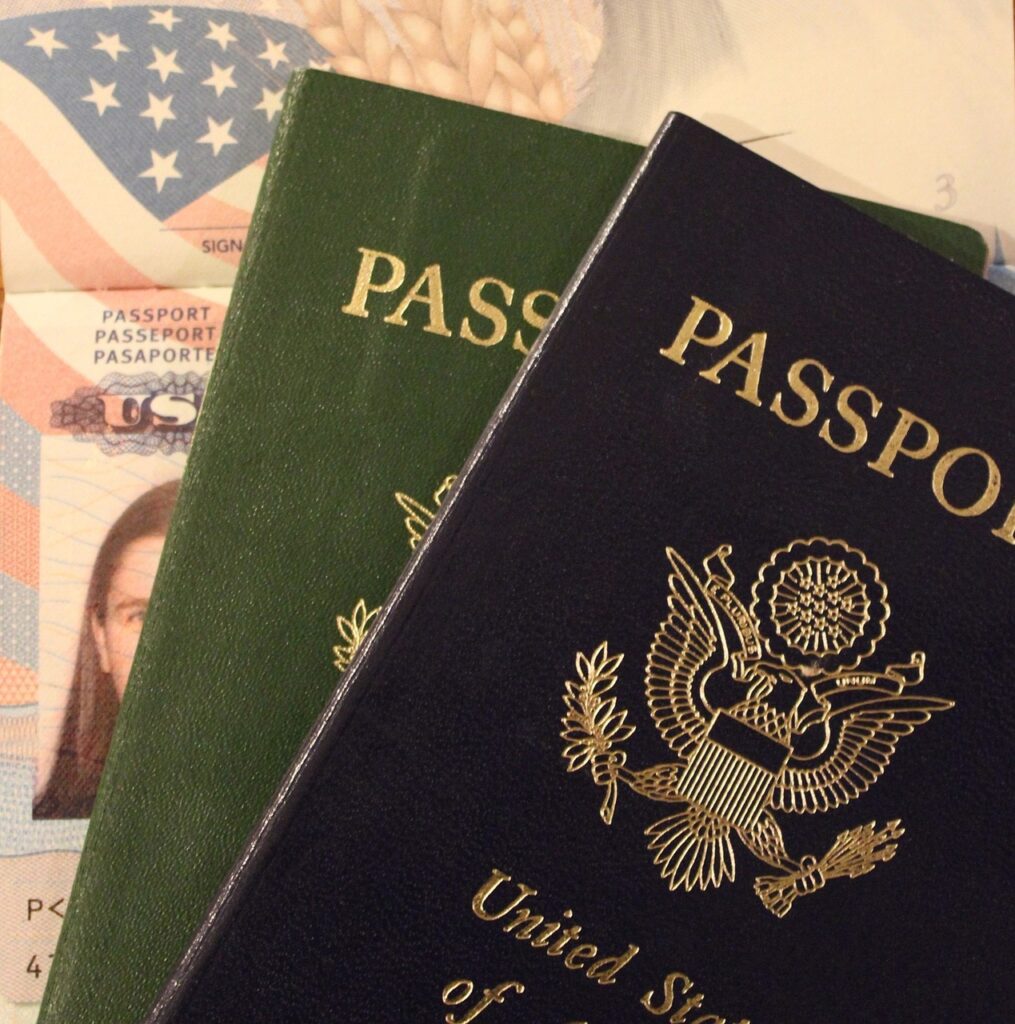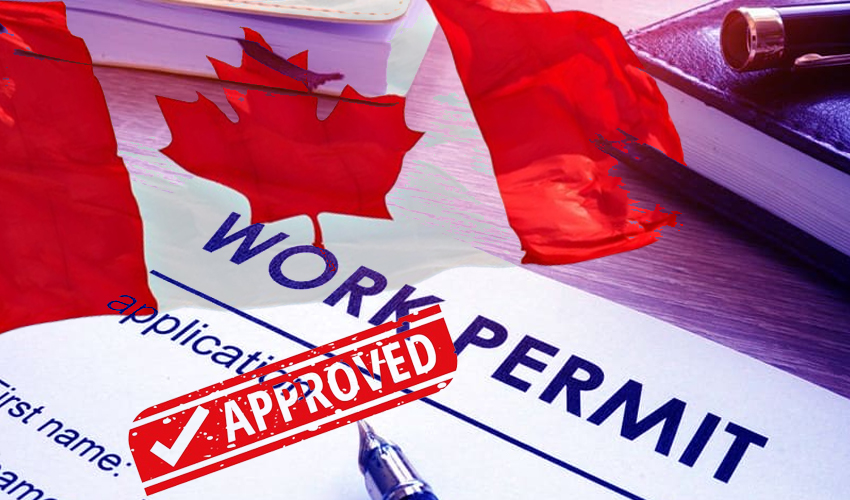Visa Guide
How Long Can You Live In The UK As An American?
Planning to live in the UK as an American? Learn about visa options and requirements for short-term visits or permanent relocations in this informative post.
Dreaming of a life across the pond? Curious about the potential for an American to call the United Kingdom home? Wonder no more, as we uncover the answers to your burning question: How long can you live in the UK as an American? Whether you’re considering a short-term adventure, or envisioning a permanent relocation, we explore the various visa options available, shedding light on the options and requirements for prolonging your stay in this captivating country. So, pack your bags and prepare for a warm British welcome, as we embark on this exciting journey together!

This image is property of pixabay.com.
Visiting the UK
Visiting the United Kingdom as a tourist is an exciting opportunity to explore its rich history, vibrant culture, and stunning landscapes. However, before you plan your trip, it’s crucial to understand the tourist visa requirements. As an American citizen, you can enter the UK for tourism purposes without a visa if you plan to stay for up to 6 months. This period allows you to fully immerse yourself in British life, visit popular tourist attractions, and experience the local customs and traditions firsthand.
Tourist visa requirements
To enter the UK as a tourist, you must fulfill certain requirements. Firstly, ensure that your passport is valid for the duration of your stay. Additionally, you should demonstrate that you have sufficient funds to cover your expenses without engaging in paid work or relying on public funds. It’s also important to provide proof of your accommodation arrangements in the UK, whether it’s a hotel reservation or staying with friends or family. Lastly, you must convince the immigration officer that you have strong ties to your home country and that you will return after your visit.
⚠️ Beware of Jobs and VISA Scams – Read our guides carefully and APPLY directly using our links and buttons. Application is free! Don’t pay anyone claiming to be a travel or Job Agent!
Permitted stay duration
With a tourist visa, you can stay in the UK for up to 6 months. During this time, you can engage in various activities, such as sightseeing, visiting friends and family, attending cultural events, or even pursuing short-term courses of study. It’s important to note that the 6-month period includes both your arrival and departure dates, so plan your visit accordingly to make the most of your time in the UK.
Extending your stay
If you’re in the UK as a tourist and wish to extend your stay beyond the initial 6-month period, you must apply for an extension before your current visa expires. Depending on your circumstances, you may be eligible to extend your stay for up to an additional 6 months. However, it’s essential to remember that there are limitations on the total time you can spend in the UK as a tourist. If you intend to stay for an extended period or for purposes other than tourism, you should explore other visa options such as a work or student visa.
Visa-free travel
In addition to the tourist visa option, American citizens can also enjoy visa-free travel to the UK under the Visa Waiver Program (VWP). Under the VWP, eligible travelers can visit the UK for tourism or business purposes for up to 6 months without obtaining a visa. This streamlined process allows for a hassle-free entry, provided you meet the VWP requirements, including having a valid Electronic System for Travel Authorization (ESTA) prior to your departure.
Studying in the UK
The United Kingdom is renowned for its prestigious educational institutions, making it an attractive destination for students from around the world. If you plan to pursue your studies in the UK, it’s important to understand the student visa requirements.
Student visa requirements
To study in the UK, you’ll need to apply for a Tier 4 (General) student visa. The requirements for this visa include having a confirmed offer of a place at a recognized educational institution, proving your ability to speak and understand English, demonstrating adequate financial resources to cover your tuition fees and living expenses, and maintaining comprehensive health insurance coverage throughout your stay.
Duration of student visa
The duration of your student visa will depend on the length of your course of study. If your course lasts for less than 6 months, you can arrive in the UK up to 1 week before your course starts and stay for the duration of your studies, plus an additional 30 days. For courses longer than 6 months, you can arrive up to 1 month before your course starts and stay for the duration of your studies, plus an additional 4 months. It’s important to note that you must leave the UK once your visa expires, unless you are eligible for another type of visa or have obtained Indefinite Leave to Remain (ILR) or British citizenship.
Working during and after studies
While studying in the UK, you may be allowed to work part-time or full-time, depending on your visa conditions. Tier 4 (General) student visa holders can work part-time during term time (up to 20 hours per week) and full-time during holidays. After completing your studies, you may be eligible to switch to a work visa category to gain valuable work experience in the UK. The UK offers various work visa options, each with its own requirements and restrictions, which we will explore in the next section.
Working in the UK
The opportunity to work in the United Kingdom is a dream for many individuals seeking to enhance their career prospects or experience different work cultures. To work in the UK, you’ll need to obtain an appropriate work visa that aligns with your professional qualifications and objectives.
Work visa requirements
To obtain a work visa, you must have a job offer from a UK employer who is willing to sponsor your visa application. The specific requirements for each work visa category may vary, but in general, you’ll need to demonstrate that you have the necessary skills and qualifications for the position, that the job cannot be filled by a local worker, and that you meet the English language proficiency requirements. You may also need to provide evidence of your financial stability and health insurance coverage.
Duration of work visa
The duration of a work visa will depend on the specific category and type of visa you hold. Work visas range from short-term options like the Tier 5 (Temporary Worker) visa, which allows individuals to work for up to 12 or 24 months depending on the subcategory, to long-term options such as the Skilled Worker visa, which can lead to Indefinite Leave to Remain (ILR) and ultimately, British citizenship. It’s important to familiarize yourself with the specifics of each work visa category and plan your career goals accordingly.
Skill-based visas
In addition to the general work visa categories, the UK offers skill-based visas specifically tailored to individuals with exceptional talent or skills in certain fields. These include the Global Talent visa for highly skilled workers in science, engineering, humanities, and digital technology, as well as the Innovator and Start-up visas for entrepreneurs looking to establish or grow their businesses in the UK. Each of these visas has its own unique requirements and opportunities, so it’s advisable to thoroughly research the eligibility criteria and consult with immigration professionals if needed.
Intra-company transfer visas
For individuals working for multinational companies, the UK offers intra-company transfer visas, which allow employees to be transferred to a UK branch or affiliate of the same company. These visas are designed to facilitate the temporary relocation of key personnel within the organization and can be a great opportunity for professional development and international experience. The duration of these visas varies depending on the specific intra-company transfer category, allowing for shorter or longer stays in the UK.
Investing in the UK
The United Kingdom offers excellent opportunities for individuals who wish to invest in its economy. Whether you are interested in starting a business, making a significant financial investment, or seeking an innovative pathway to reside in the country, the UK’s investor visa category might be the ideal choice for you.
Investor visa requirements
To be eligible for an investor visa, you must invest a minimum amount of funds in qualifying UK investments. The requirements for this visa include having access to at least £2 million in investment funds, providing evidence of the legitimacy of your funds, and demonstrating that your assets are held in controlled financial institutions. Additionally, you must prove your intent to invest in the UK and that you have the capability to support yourself and any dependents without needing assistance from public funds.
Duration of investor visa
The investor visa allows for an initial period of stay in the UK of up to 3 years and 4 months. After this initial period, you may be eligible to extend your visa for an additional 2 years. By meeting certain investment thresholds, you can also apply to accelerate the settlement process, allowing you to obtain Indefinite Leave to Remain (ILR) in the UK in a shorter timeframe.
Financial requirements
Apart from the investment funds required, it’s crucial to have a comprehensive understanding of the financial obligations associated with living in the UK as an investor visa holder. This includes ensuring that you have adequate funds to cover your living expenses, maintaining the minimum investment level required by the visa, and adhering to any reporting requirements or restrictions on accessing your investment funds.

This image is property of pixabay.com.
Family and Spousal Immigration
The UK recognizes the importance of family unity and provides visa options for individuals who wish to join their family members or spouses in the country. Whether you are a partner, child, or dependent relative of a British citizen or a settled person in the UK, there are specific visa categories available to facilitate your entry and stay.
Family visa requirements
To enter the UK as a family member of a British citizen or settled person, you must meet the specific requirements for each category. These requirements vary depending on the relationship and circumstances, but generally include proving the genuineness of the relationship, providing evidence of financial support, and demonstrating adequate accommodation arrangements.
Duration of family visa
The duration of a family visa will depend on the specific category and circumstances. For spouses, civil partners, unmarried partners, and same-sex partners, the initial visa is granted for 33 months. After completing a 5-year period in the UK, you may be eligible to apply for Indefinite Leave to Remain (ILR). The duration for other family visa categories, such as adult dependent relatives or children, may vary and require careful consideration to ensure compliance with the immigration rules.
Spousal visa requirements
The UK offers a dedicated visa category for spouses and partners of British citizens or settled persons who wish to join their loved ones in the country. The spousal visa requirements include proving the genuine and subsisting nature of the relationship, meeting the financial threshold to demonstrate adequate financial support, and providing evidence of suitable accommodation arrangements in the UK.
Duration of spousal visa
A spousal visa initially grants a stay in the UK for 33 months. After completing a continuous 5-year residence period in the UK, you can apply to settle permanently by obtaining Indefinite Leave to Remain (ILR). Following the acquisition of ILR, you have the option to pursue British citizenship, thereby cementing your ties to the UK and enjoying the benefits of being a British citizen.
Retiring in the UK
The United Kingdom offers a welcoming environment for retirees looking to enjoy their golden years in a country that boasts a rich history and excellent standards of healthcare. If you are considering retiring in the UK, it’s essential to understand the retirement visa requirements and the various benefits available to retirees.
Retirement visa requirements
The UK does not have a dedicated retirement visa category. However, individuals who wish to retire in the UK can apply for a standard visitor visa, which allows for a period of stay of up to 6 months. Throughout this period, retirees can experience the UK’s cultural offerings, explore its picturesque landscapes, and potentially decide if retiring in the UK is the right choice for them.
Pension eligibility
Retirees from the United States who have contributed to the US Social Security system may be eligible to receive their pensions while residing in the UK. The US-UK Totalization Agreement ensures that retirees can benefit from their US Social Security pensions, provided they meet the eligibility criteria. It’s advisable to consult with the relevant authorities to understand the specific rules and regulations regarding pension eligibility and benefits.
Healthcare coverage
Retirees from the United States who have retired in the UK are entitled to access the National Health Service (NHS) for healthcare needs. However, it’s crucial to understand the complexities of healthcare coverage as an immigrant retiree. Considering the potential impact of Brexit on healthcare regulations, it’s advisable to seek appropriate guidance and ensure comprehensive health insurance coverage to protect your well-being during your retirement in the UK.

This image is property of pixabay.com.
British Citizenship
For individuals who have established a deep connection to the United Kingdom and wish to permanently become part of this vibrant nation, British citizenship is the ultimate goal. By becoming a British citizen, you can enjoy the rights and privileges that come with it, including the ability to live and work in the UK indefinitely.
How to become a British citizen
Becoming a British citizen is a significant milestone that requires meeting specific criteria and going through a naturalization process. Generally, you must have lived in the UK for a specified period, demonstrated knowledge of the English language and life in the UK, and shown good character and allegiance to the UK. It’s important to thoroughly review the requirements to ensure you are eligible and to seek professional advice if needed.
Naturalization requirements
Applying for British citizenship through naturalization requires meeting specific residency requirements. The length of time you must have lived in the UK continuously before applying varies depending on your circumstances. Generally, you must have lived in the UK for at least 5 years and held settlement status, commonly known as Indefinite Leave to Remain, for at least 12 months. There are additional requirements for individuals married to British citizens, as well as for those with exceptional or unique circumstances.
Dual citizenship
The United Kingdom recognizes and allows for dual citizenship, meaning that you can retain your American citizenship while obtaining British citizenship. Dual citizenship provides the benefit of enjoying the rights and privileges of both countries, including the ability to reside and work in either country and access consular services. It’s important to be aware of the specific rules and regulations governing dual citizenship in both the US and the UK to ensure compliance with their respective laws.
Brexit Impact
The United Kingdom’s departure from the European Union, commonly known as Brexit, has brought about significant changes and implications for individuals who wish to visit, work, study, or reside in the UK. It’s important to understand the impact of Brexit, particularly for Americans and EU citizens.
Effect of Brexit on Americans
For American citizens, the impact of Brexit primarily pertains to changes in immigration rules and procedures. While the specific effects may vary depending on individual circumstances, it’s crucial to stay informed about any visa requirements or restrictions that may be applicable post-Brexit. Additionally, considering the evolving nature of the UK’s relationship with the EU, it’s advisable to regularly consult official government sources for the most up-to-date information.
Settlement scheme for EU citizens
As part of the Brexit process, the UK has established a Settlement Scheme for European Union (EU), European Economic Area (EEA), and Swiss citizens and their family members who were residing in the UK before the end of the Brexit transition period. The scheme allows eligible individuals to secure their immigration status in the UK and continue living, working, and studying there. It’s vital for EU citizens and their family members to carefully review the requirements and apply for the Settlement Scheme within the specified deadlines to protect their rights and maintain their legal status in the UK.
Future changes
While the full impact of Brexit on immigration and residency remains to be seen, it’s important to monitor any future changes to immigration rules and regulations. The UK government continues to refine its immigration policies, and adjustments may occur over time. Staying informed about any developments and seeking professional advice when necessary will help ensure that you navigate the evolving landscape successfully and make informed decisions regarding your stay or immigration plans in the UK.
Residency Requirements
To establish a long-term presence in the United Kingdom, it’s important to understand the residency requirements. Whether you aim to remain in the UK for work, study, retirement, or family-related reasons, meeting these criteria is essential.
Residency requirement criteria
The specific residency requirement criteria vary depending on the visa category and individual circumstances. Generally, you must demonstrate that you have continuously resided in the UK throughout your stay, adhering to the terms and conditions of your visa. It’s crucial to maintain compliance with any reporting obligations, abide by the immigration rules, and avoid any actions that could jeopardize your residency status.
Documentary evidence
To prove your continuous residence in the UK, you will need to provide documentary evidence. This may include bank statements, utility bills, rental agreements, employment contracts, and other relevant documents demonstrating your connection to the UK and your compliance with the immigration rules. Collecting and retaining comprehensive documentary evidence is essential in ensuring a smooth application process for visa extensions or settlement.
Continuous residence
Continuous residence is a crucial aspect in determining eligibility for various visa extensions, settlement, or British citizenship. It means that you have maintained your physical presence in the UK throughout your stay without extended absences or any breaches of immigration rules. While the specific rules and allowed breaks in continuous residence may vary depending on the visa category, it’s important to keep a close eye on your travel history and maintain accurate records.
Indefinite Leave to Remain
Indefinite Leave to Remain (ILR) is a form of settlement in the UK that allows individuals to reside indefinitely without any immigration restrictions. Once you obtain ILR, you have the freedom to live and work in the UK without the need for a visa. However, it’s important to note that ILR can be lost if you spend too much time outside of the UK or if you engage in activities that could jeopardize your immigration status. Therefore, understanding the conditions and maintaining compliance is crucial to retaining your ILR status.
Conclusion
The United Kingdom offers diverse opportunities for individuals from all walks of life, whether you are planning a short visit, pursuing education or career prospects, joining your loved ones, or seeking to settle permanently. By understanding the visa requirements, permitted stay duration, and various pathways available, you can navigate the immigration process confidently and make the most of your time in this enchanting country. Remember to stay informed about any changes, seek professional guidance when needed, and embrace the unique experiences and opportunities that await you in the UK.






